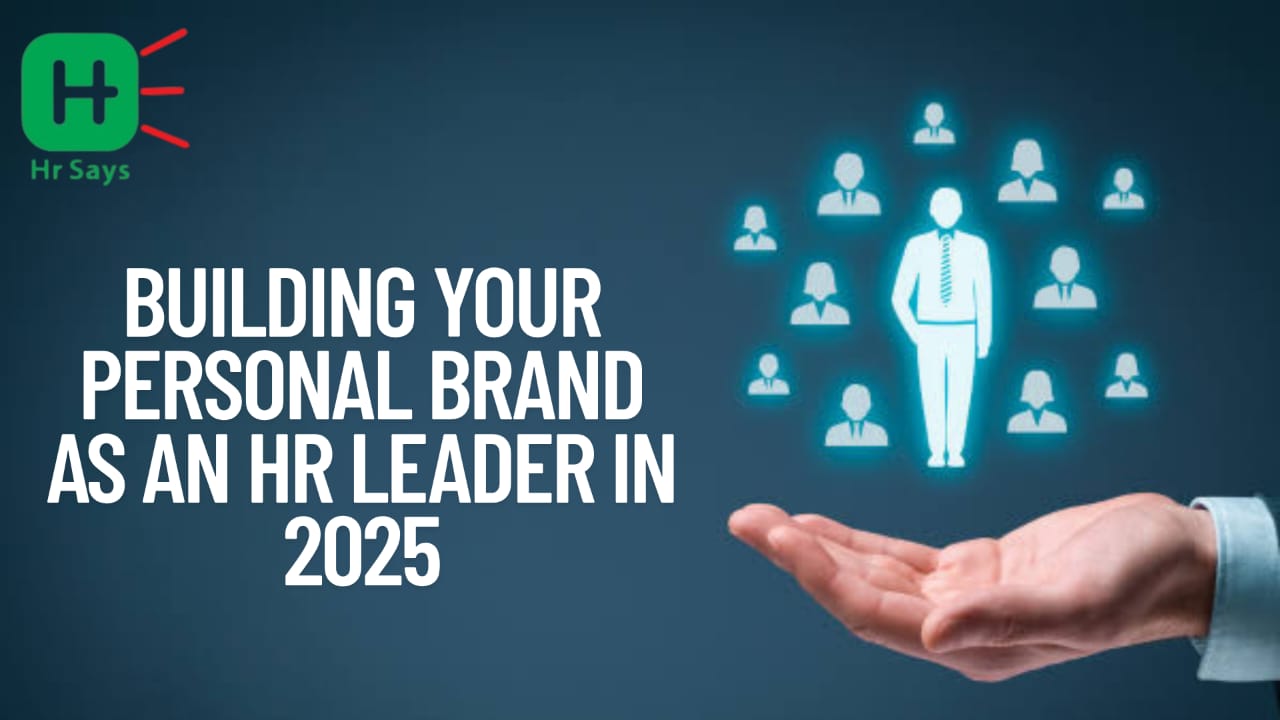In 2025, HR is no longer a behind-the-scenes function. Today’s top HR professionals are building visible, credible, and authentic personal brands — not just to grow their own careers, but to influence workplace culture, attract talent, and shape the larger HR narrative.
Whether you're a mid-level manager or already heading HR at a large organization, the question is no longer “Should I build my brand?”
It’s “How will my brand help others trust my leadership?”
🌐 Why Personal Branding Matters in HR Now More Than Ever
Employees want more than policies — they want to follow people they trust. In the age of remote work, social hiring, and values-based employment, HR leaders who communicate openly build connection before contracts.
Having a personal brand:
- Positions you as a thought partner, not just a policy enforcer
- Builds trust with employees, leadership, and potential hires
- Attracts speaking invites, media features, and strategic roles
- Helps you define HR narratives before someone else does it for you
👤 What Makes a Strong HR Personal Brand?
It's not about being famous. It’s about being clear, consistent, and credible. Here are the key traits of standout HR brands in 2025:
|
Element |
Description |
|
Clarity |
What do you stand for? (e.g., inclusive hiring, ethical leadership, people-first performance) |
|
Visibility |
Do people know your point of view? (Think: LinkedIn, podcasts, HR panels) |
|
Consistency |
Are you present beyond HR Week? Regularity matters more than viral posts |
|
Credibility |
Are you walking the talk? Back your opinions with action and impact |
📱 Real Patterns from the Field
- A trend noted by LinkedIn Talent Solutions shows HR professionals who post consistent thought leadership content (even as simple as “team behind the scenes” posts) see improved inbound applications and personal visibility.
(Source: LinkedIn Talent Trends, 2024) - An HR leader at a consumer tech startup launched a bi-weekly LinkedIn series titled “Tough HR Moments” — candid reflections on hiring freezes, burnout, and cultural missteps. The result? A surge in industry collaboration and peer engagement.
These examples show that influence isn't about virality — it's about relevance and authenticity.
✍️ 5 Steps to Start Building Your Brand Today
- Define Your Focus Area
- What excites you in HR: DEI? Hiring? Culture? Tech?
- Make your brand about one thing, not everything
- Create a Weekly Sharing Habit
- Post a short idea, story, or challenge on LinkedIn
- Start with once a week — consistency is the key
- Engage with the Community
- Comment on other HR voices. Share their work. Build your circle.
- Speak Up in Internal Forums
- Share insights on Slack, HR townhalls, or company newsletters — visibility isn’t just external
- Measure Growth by Engagement, Not Followers
- Are people asking questions? Sharing your work? That’s traction.
🚀 HR Brand Ideas You Can Start Sharing
|
Format |
Example |
|
Story |
“The time we onboarded 100 new hires in 5 days — and what we learned.” |
|
Insight |
“Why feedback fails in most companies (and how we fixed it)” |
|
POV |
“Why HR needs fewer policies and more conversations” |
|
Lesson |
“The one mistake I made in a layoff communication — and what I’ll never repeat” |
💬 Final Thought: Your Brand Is Your Legacy
You don’t need to be an influencer. You just need to be intentional.
The future of HR will be led by professionals who are visible, credible, and human. Your brand isn’t a performance — it’s proof of what you believe in.
Coming up next: Smart, budget-friendly ways to amplify your employer brand as a small HR team.
📢 Already experimenting with personal branding? We’d love to feature how you’re doing it — quietly, consistently, or creatively. Share your journey with HRsays.

 In 2025, being a great HR leader isn’t enough — you also need to be visible. This article explores how HR professionals can build a personal brand that’s both authentic and strategic. From refining your LinkedIn presence to speaking your values in public forums, we offer a roadmap for getting noticed without self-promotion fatigue. It’s about building trust, not just followers. If you're an HR with a message, this piece helps you shape and share it.
In 2025, being a great HR leader isn’t enough — you also need to be visible. This article explores how HR professionals can build a personal brand that’s both authentic and strategic. From refining your LinkedIn presence to speaking your values in public forums, we offer a roadmap for getting noticed without self-promotion fatigue. It’s about building trust, not just followers. If you're an HR with a message, this piece helps you shape and share it.









.jpeg)
.jpeg)

.jpeg)





.jpeg)



.jpeg)

.jpeg)



